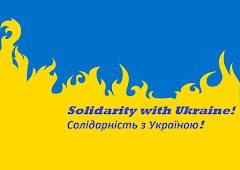Amendamentele lui Oprea au fost aprobate de Comisia pentru Cultura si Educatie. Singura noastra sansa, a blogerilor, este ca Raportul Mikko sa fie respins de Parlamentul European in sedinta plenara din septembrie.
There is a "considerable risk" that the private media's pursuit of profit could compromise its ability to act as a watchdog for democracy, warns a report adopted by the Culture and Education Committee on Tuesday. MEPs advocate "editorial charters" to prevent owners, shareholders or governments from interfering with editorial content, and ombudsmen to protect media freedom. They also want status of weblogs clarified, and suggest introducing fees for commercial use of user-generated content.
Market mechanisms are not enough to guarantee media pluralism, warns the own-initiative report by Marianne Mikko (PES, ET), which voices concern about the concentration of ownership in the media business, "as experience shows that the unrestricted concentration of ownership jeopardises pluralism and cultural diversity".
"The cases of unrestricted ownership concentration or of scarce content pluralism in the media are endangering cultural diversity and freedom of expression not only within national markets but also at European level. We need therefore strong European commitment to overcome those challenges especially in view of the new technologies and services in the media sector", said Committee chair Katarina Batzeli (PES, EL).
Ms Mikko describes her report as a "political guidance to safeguard democracy ", outlining "a way to ensure pluralism of media channels, i.e. a balance between quantity and quality in the media market".
Media concentration threatens watchdog role
The report voices concern that the concentration of ownership of the private media and relentless pursuit of profit could lead to loss of diversity and of the media's role as a watchdog of democracy. To protect journalistic and editorial independence, MEPs advocate creating "editorial charters", to be applied in the same way in all Member States, so as to prevent owners, shareholders or governments from interfering with news content.
MEPs also find it important to ensure that the public service media carry out the function entrusted to them by Member States in a transparent and accountable manner, so as to prevent the abuse of public funding for political or economic gain.
Ombudsmen to watch over media freedom
MEPs also advocate a "charter for media freedom" to guarantee freedom of expression and pluralism suggest creating independent media ombudsmen or comparable institutions in those Member States that do not already have them. MEPs also encourage the disclosure of ownership of all media outlets, so as to shed light on the aims and backgrounds of broadcasters and publishers.
User-generated content and weblogs - a new challenge
Weblogs and other new on-line media pose new challenges, note MEPs. The growth of commercial media outlets for user-generated content, such as photos and videos, that are used without paying a fee, raises problems of ethics and privacy, and puts journalists and other media professionals under pressure, they say.
The Committee also says that new legal measures are needed to protect the privacy of citizens and public figures in cases where it is breached by the growing use of the user's own videos and photos.
As weblogs represent an important new contribution to the media pluralism, there is a need to clarify their status, and to create legal safeguards for use in the event of lawsuits as well as to establish a right to reply, says the report.
The report was adopted with 33 votes for, 1 against and no abstentions.
AICI


Niciun comentariu:
Trimiteți un comentariu